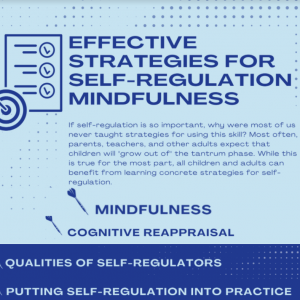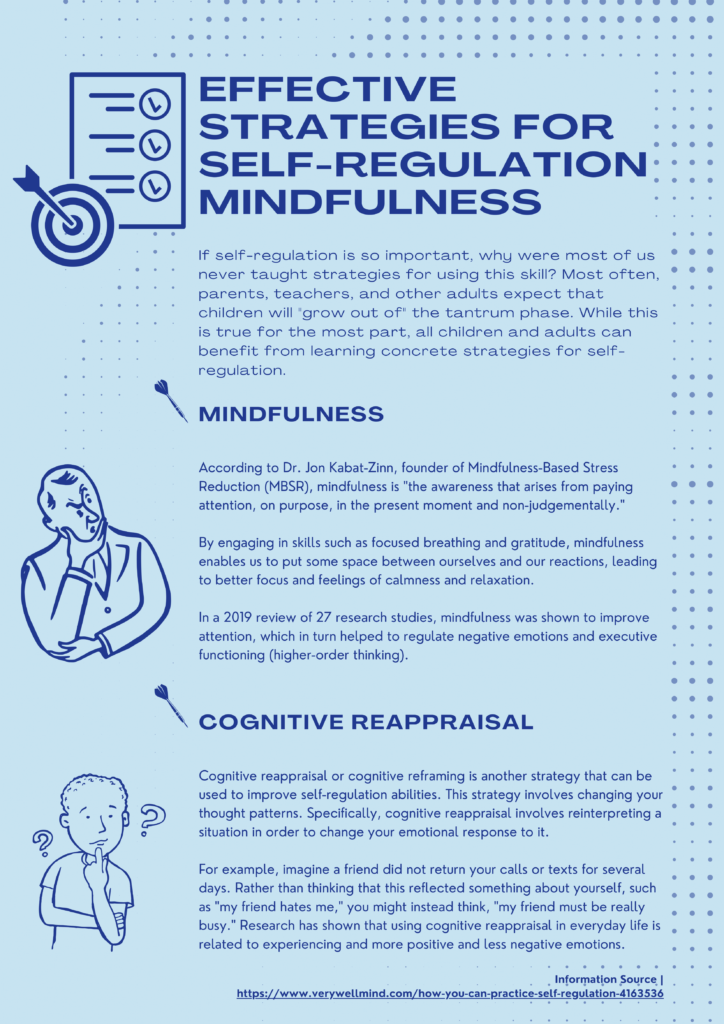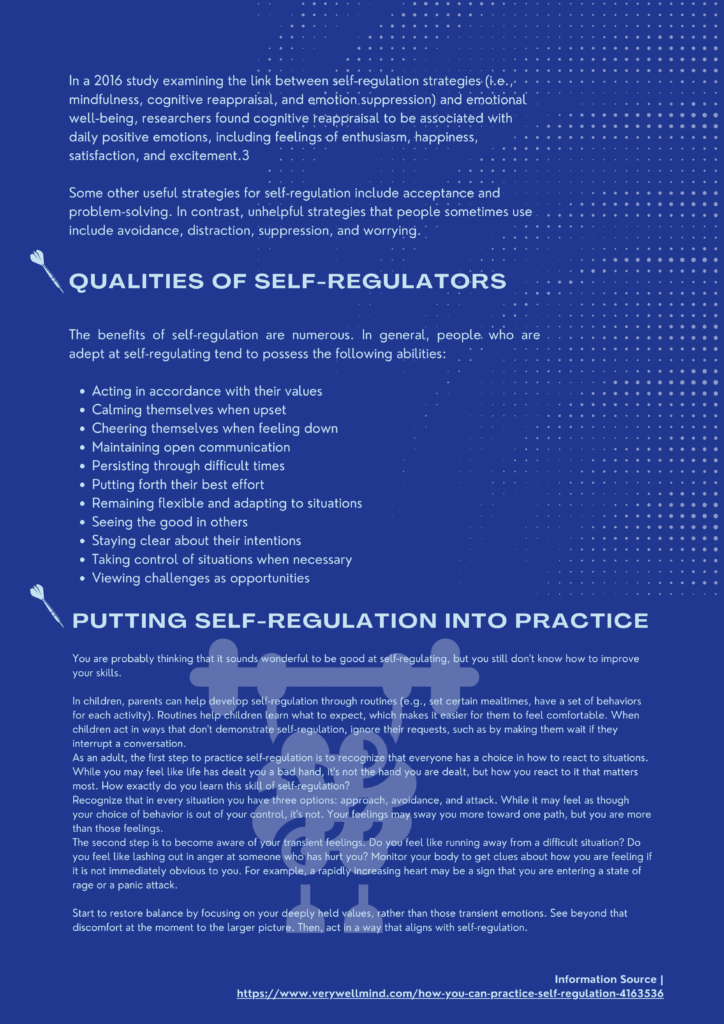
01 Sep Effective Strategies for Self-Regulation Mindfulness
👉😊Effective Strategies for Self-Regulation Mindfulness😊👈
You probably thinking that it sounds wonderful to be good at self-regulating, but you still don’t know how to improve your skills.
Self-regulation can be defined in various ways. In the most basic sense, it involves controlling one’s behavior, emotions, and thoughts in the pursuit of long-term goals. More specifically, emotional self-regulation refers to the ability to manage disruptive emotions and impulses.
In other words, to think before acting. It also reflects the ability to cheer yourself up after disappointments and to act in a way consistent with your deepest held values.
Your ability to self-regulate as an adult has roots in your development during childhood. Learning how to self-regulate is an important skill that children learn both for emotional maturity and later social connections.
In an ideal situation, a toddler who throws tantrums grows into a child who learns how to tolerate uncomfortable feelings without throwing a fit and later into an adult who is able to control impulses to act based on uncomfortable feelings.
In essence, maturity reflects the ability to face emotional, social, and cognitive threats in the environment with patience and thoughtfulness. If this description reminds you of mindfulness, that’s no accident—mindfulness does indeed relate to the ability to self-regulate.
Here are some effective strategies for self-regulation mindfulness.


Download the PDF file here.
Read our blog about How To Find Your Purpose In Life.
Check Out Our Other Blogs:
Craig Selinger
Latest posts by Craig Selinger (see all)
- Psychotherapy and Support Services at Cope With School NYC - April 12, 2024
- NYC Parents of Teens Support Group - April 8, 2024
- Here I Am, I Am Me: An Illustrated Guide to Mental Health - April 4, 2024

No Comments